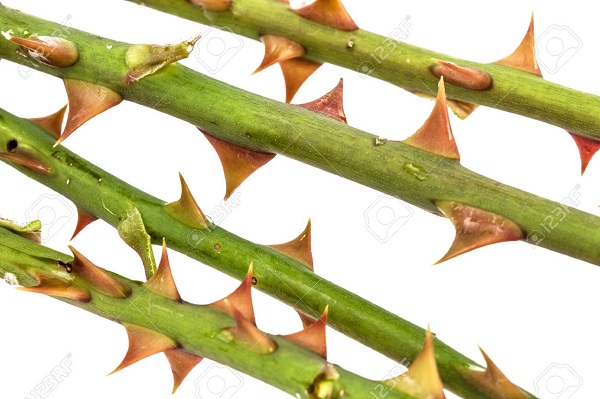FWP:
SETS == IDIOMS
For discussion of nah sahī , see {175,1}.
At the end of the first line, to hai is also idiomatic: although literally it means 'then is', its colloquial sense is 'at least there's X' or 'after all, there's X'.
The 'Flower-picker' may or may not be the same gardener who cares for the garden, but in any case he's picking flowers probably to sell them, and certainly to use them for some special purpose. So he'll be systematic rather than casual: he won't just gather a few for pleasure, but will take care to choose a large number of the best ones.
Thus it's piquant (which literally means 'pricking') and amusing that the lover treats his access to, or even possession of, 'every thorn' [ḳhār ḳhār], as a comfort. To the lover-- or literally, to a semi-personified 'ardor' that presumably belongs to him-- this collection of the thorns of longing seems to be a great consolation, even in the absence of the flowers of satisfaction.
For an even more elegant and haunting conflation of thorns
and flowers, see how they're used in the striking {214,6}.

Nazm:
If not the roses of peace/satisfaction, then are the thorns of longing a small thing [kyā kam hai]? (196)
== Nazm page 196